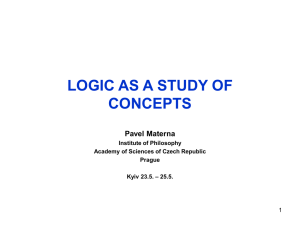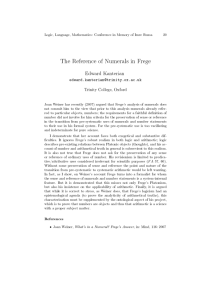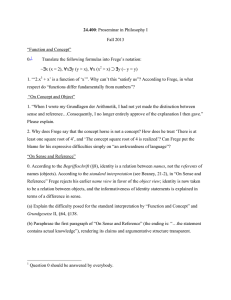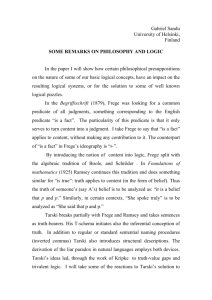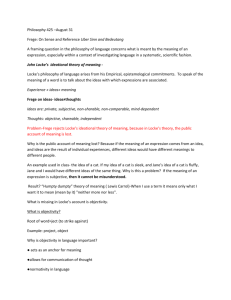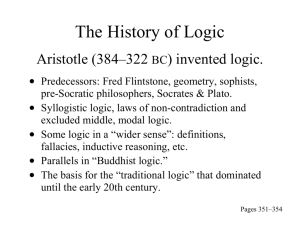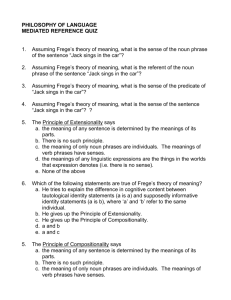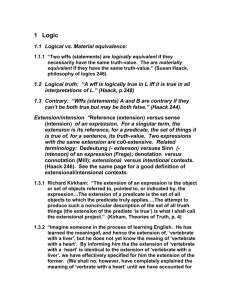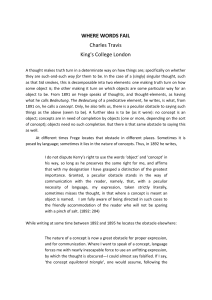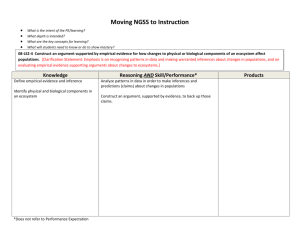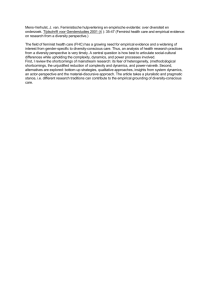Logic as a study of concepts
advertisement
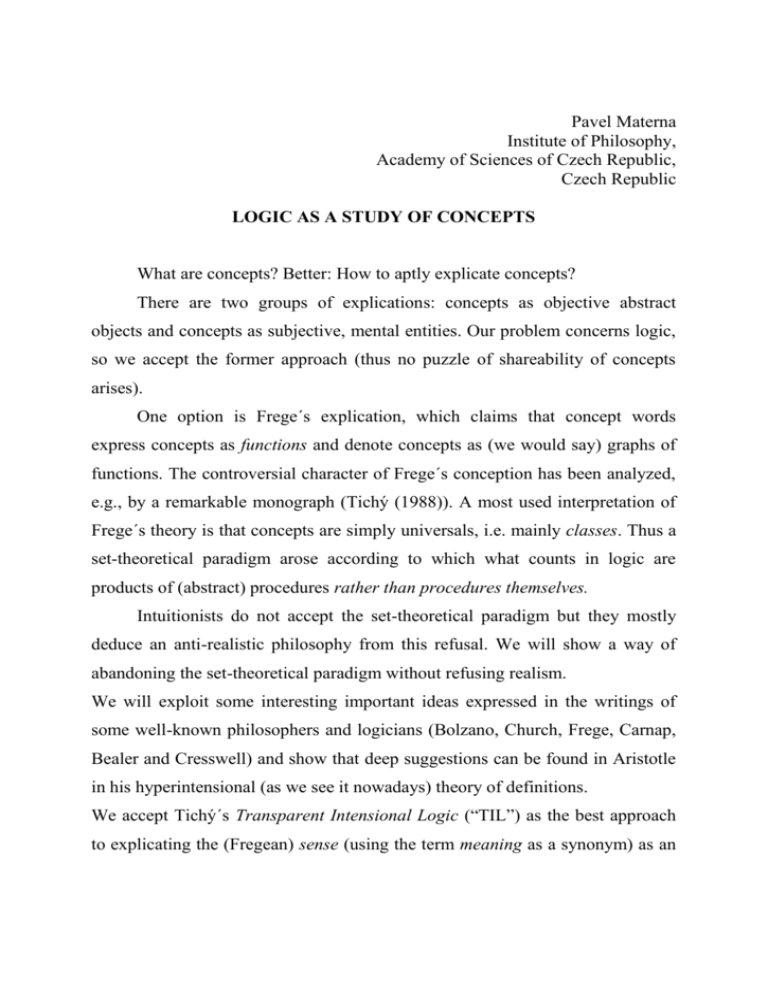
Pavel Materna Institute of Philosophy, Academy of Sciences of Czech Republic, Czech Republic LOGIC AS A STUDY OF CONCEPTS What are concepts? Better: How to aptly explicate concepts? There are two groups of explications: concepts as objective abstract objects and concepts as subjective, mental entities. Our problem concerns logic, so we accept the former approach (thus no puzzle of shareability of concepts arises). One option is Frege´s explication, which claims that concept words express concepts as functions and denote concepts as (we would say) graphs of functions. The controversial character of Frege´s conception has been analyzed, e.g., by a remarkable monograph (Tichý (1988)). A most used interpretation of Frege´s theory is that concepts are simply universals, i.e. mainly classes. Thus a set-theoretical paradigm arose according to which what counts in logic are products of (abstract) procedures rather than procedures themselves. Intuitionists do not accept the set-theoretical paradigm but they mostly deduce an anti-realistic philosophy from this refusal. We will show a way of abandoning the set-theoretical paradigm without refusing realism. We will exploit some interesting important ideas expressed in the writings of some well-known philosophers and logicians (Bolzano, Church, Frege, Carnap, Bealer and Cresswell) and show that deep suggestions can be found in Aristotle in his hyperintensional (as we see it nowadays) theory of definitions. We accept Tichý´s Transparent Intensional Logic (“TIL”) as the best approach to explicating the (Fregean) sense (using the term meaning as a synonym) as an abstract procedure, defining such procedures as constructions. Concepts are then explicated as closed constructions. This approach makes it possible to prove that meanings (and so concepts) are independent of any context. What is dependent on context are ways in which the concepts are handled: There are three such ways (contexts): hyperintensional, intensional, extensional. Logic does not use empirical concepts to study reality. It either uses only non-empirical concepts or it uses empirical concepts only in intensional context. (Empirical) Science uses empirical concepts in extensional contexts, i.e. applying them to possible worlds. Logic uses extensionally only logical concepts, which bring no information about reality.
